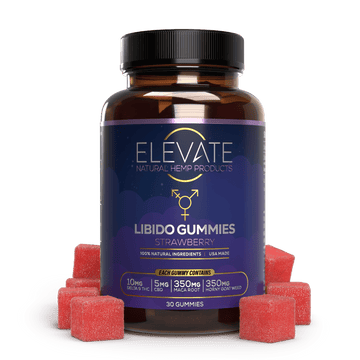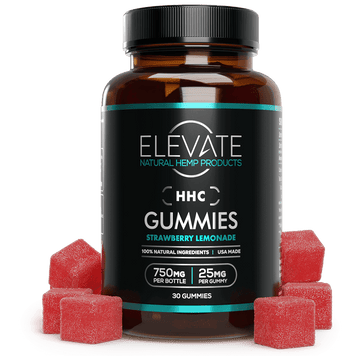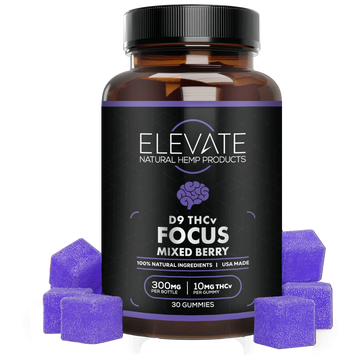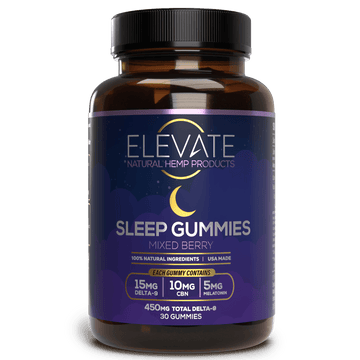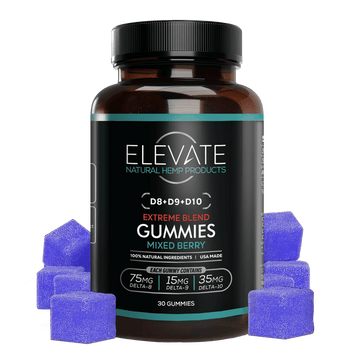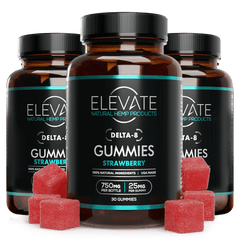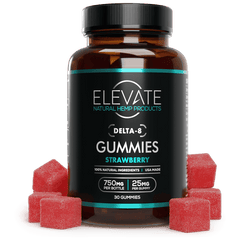If you've ever tried traditional THC, you know the experience can be a bit of a wild card. For some, it's relaxing and euphoric; for others, it's a fast track to anxiety. That's where Delta 8 THC enters the conversation. It’s a close relative to the well-known Delta 9, but with a key difference in its chemical structure that changes everything. So, does it get you high? Absolutely. But the Delta 8 high is consistently reported as being more functional and less intense. Think of it as THC's calmer, more predictable cousin. In this article, we'll compare the two cannabinoids side-by-side, so you can understand the unique effects of Delta 8 and decide if its gentler journey is the right fit for you.
Key Takeaways:
- Milder High: Delta 8 provides a more subtle, less intense high compared to Delta 9, making it a good option for those new to THC or seeking a gentler experience.
- Safe Consumption: Always start with a low dose and gradually adjust, especially if you're new to Delta 8. Be mindful of the form (edibles, vapes, etc.) and the timing of consumption.
- Potential Benefits: Delta 8 offers benefits like stress relief, appetite stimulation, and possible neuroprotective properties, making it a versatile cannabinoid for various needs.
Are you curious about Delta 8 and whether it will get you high? You're not alone. As more people explore the world of cannabinoids, Delta 8 THC has been gaining attention for its unique effects. Unlike its more potent cousin, Delta 9 THC, Delta 8 is often described as having a milder, less intense high.
But what does that mean for you? If you’re considering trying Delta 8 but want to know if it will impact your mind and body in a way that makes you feel out of control or overly impaired, this is the place to start.
In this article, we’ll break down everything you need to know—from the science behind Delta 8, how it compares to other THC products, to what you can expect regarding effects.
What Is Delta 8 THC?
Delta 8 THC, a compound garnering significant interest within the hemp community, is a cannabinoid found naturally in small amounts in cannabis plants. Chemically, it shares similarities with Delta 9 THC—the most prevalent psychoactive compound in marijuana—yet exhibits distinct differences that set it apart. Its molecular makeup differs only slightly, with a double bond located at the eighth carbon chain, rather than the ninth, which influences its effects and potency.
Delta 8 THC is known for providing a milder high compared to Delta 9 THC, appealing to those seeking a more manageable psychoactive experience. Anecdotal reports and preliminary research suggest that Delta 8 may offer similar benefits, such as relaxation and euphoria, but without some of the downsides associated with Delta 9, like paranoia or anxiety. This unique profile makes Delta 8 attractive for those exploring the expanding world of cannabinoids.
The Legal Status of Delta 8 THC
One of the most common questions about Delta 8 is whether it's actually legal. The answer isn't a simple yes or no—it's complicated and depends on where you live. The confusion stems from a conflict between federal and state laws, which has created a complex legal landscape for cannabinoids derived from hemp. Understanding these nuances is key to consuming Delta 8 products responsibly and confidently, ensuring you can enjoy the experience without any legal worries hanging over your head.
The Federal Gray Area and the 2018 Farm Bill
At the federal level, the conversation starts with the 2018 Farm Bill. This legislation legalized hemp and its derivatives by distinguishing them from marijuana based on Delta 9 THC content. According to the bill, any cannabis plant with less than 0.3% Delta 9 THC is considered legal hemp. Since most Delta 8 products are derived from hemp, they exist in a federal loophole. The law didn't specifically address Delta 8, creating what many refer to as a legal gray area. This has allowed for the sale and distribution of Delta 8 in many parts of the country, even in states where recreational cannabis remains illegal.
Varying State-Level Laws and Restrictions
While the Farm Bill provides a federal framework, it doesn't stop states from creating their own rules. In response to the growing popularity of Delta 8, many states have passed specific legislation either banning or restricting its sale. These restrictions are often due to concerns over safety and the lack of clear regulation. Because the legal status can change from one state to the next, it's crucial to check your local laws before making a purchase. As a consumer, staying informed about your state's specific regulations is the best way to ensure you are following the law and can use these products safely and responsibly.
Can Delta 8 Get You High?
Delta 8 THC is increasingly becoming the cannabinoid of choice for many adult consumers. However, one of the most common questions is whether Delta 8 can get you high. Although this experience may vary from one individual to another, several aspects are worth considering to fully understand its effects.
Understanding The Cannabinoid
Delta 8 THC is a psychoactive cannabinoid found in hemp plants, but it is structurally different from the more widely known Delta 9 THC. This difference in chemical structure influences how it interacts with the body's endocannabinoid system. Delta 8 binds to the CB1 receptors in the brain, much like Delta 9, but does so with slightly less intensity. This often results in a milder psychoactive effect compared to the sometimes overwhelming high of Delta 9 THC.
Comparing Effects
For those familiar with Delta 9 THC, using Delta 8 might produce a more subtle euphoria. Users report feelings of relaxation, mild euphoria, and increased focus without the paranoia commonly associated with higher doses of Delta 9. However, the outcome is largely dose-dependent and can vary widely among individuals based on body chemistry, metabolism, and tolerance levels.
How Long Do the Effects Last?
So, how long can you expect the high to last? Generally, the effects of Delta 8 can stick around for anywhere from three to eight hours. That’s a pretty wide window, and the exact duration really depends on a few things. Your personal metabolism and tolerance level play a big part, as does the way you consume it. For instance, vaping Delta 8 usually brings on effects quickly that fade faster, while edibles like Delta 8 gummies take longer to kick in but tend to provide a longer-lasting experience. Many people describe the high as more clear-headed and functional compared to Delta 9, allowing them to feel relaxed and happy without feeling overly sedated or anxious. It’s a gentler ride, which is why it’s a great starting point if you’re new to THC.
Safety And Consumption Guidelines
As with any cannabinoid product, responsible use is paramount. Understanding dosage, personal tolerance, and product type (edibles, vapes, or oils) is important. The adage "start low and go slow" is often recommended, allowing individuals to gauge their personal reactions to Delta 8 safely. Seeking product transparency from reputable sources ensures that your consumption is tested for quality and purity, contributing to a safer experience.
Benefits And Uses Of Delta 8 THC
Delta 8 THC is gaining attention not just for its similarity to Delta 9 THC but for its distinct effects and potential benefits. Below are some common benefits and uses that have increased interest in this unique cannabinoid.
Mild Psychoactive Effect
Delta 8 THC is often described as offering a milder psychoactive experience compared to Delta 9 THC. While it does produce a feeling of euphoria, users often report that the high is less intense, which can be appealing to those who prefer a gentler effect. This aspect makes Delta 8 a suitable choice for individuals who wish to enjoy the benefits of THC without feeling overwhelmed.
Stress And Anxiety Relief
Many users turn to Delta 8 THC for its purported anxiolytic properties. It is believed that Delta 8 interacts with the endocannabinoid system to produce calming effects, thereby helping to alleviate stress and anxiety. This makes it a potential natural alternative for those seeking mental relaxation.
Appetite Stimulation
Delta 8 THC is noted for its appetite-enhancing properties. Preliminary research suggests it may be more effective at stimulating hunger than Delta 9 THC, making it a beneficial option for individuals dealing with appetite loss due to medical conditions or treatments.
Potential Neuroprotective Properties
Emerging research indicates Delta 8 THC may possess neuroprotective properties. It interacts with the brain in a way that could protect neurons and enhance cognitive function. These properties open up exciting possibilities for its use in managing neurodegenerative conditions, though further research is needed.
Delta 8 THC is undoubtedly a multifaceted cannabinoid offering a range of potential benefits. As ongoing research continues to uncover more about this intriguing compound, interest will likely grow among new and experienced users.

Potential Side Effects And Risks Of Delta 8
While Delta 8 THC offers a milder psychoactive experience compared to Delta 9 THC, it is important to recognize that its consumption can still come with certain side effects and potential risks. Understanding these can help users make informed decisions and ensure safer usage. Here, we explore some key considerations:
Common Side Effects
Delta 8 may produce side effects that are akin to those associated with other cannabinoids, albeit often less intense. Users frequently report experiences such as dry mouth, red eyes, and dizziness. These effects are typically mild and manageable, but they underscore the importance of cautious consumption, particularly for new or inexperienced users.
Reported Adverse Events
It's also important to be aware of more serious reactions. The FDA has received over 100 reports of adverse events related to Delta 8, with more than half of those cases requiring medical attention or hospitalization. These reports included symptoms like hallucinations, vomiting, anxiety, confusion, and loss of consciousness. Since the market isn't federally regulated, the quality of products can vary drastically. Some untested products have been found to contain harmful contaminants like lead and mercury. This is why choosing products from a reputable source that provides third-party lab testing is so critical for your safety. Remember, Delta 8 can still affect your thinking and reaction time, so you should never drive or operate machinery after using it.
Cognitive And Motor Impairments
While Delta 8 is recognized for providing a clearer-headed high compared to Delta 9, it can still impact cognitive and motor functions. Users may experience altered perception and slower reaction times, which are crucial considerations when engaging in activities such as driving or operating heavy machinery. It is advised to avoid such activities until the effects of Delta 8 have completely faded.
Drug Interactions
Individuals taking medications should be aware of potential interactions. Delta 8 can affect the metabolism of certain drugs, potentially altering their effectiveness or resulting in undesirable effects. Consulting with a healthcare professional before combining Delta 8 with other substances is strongly recommended, especially for those with pre-existing health conditions or who are on prescription medications.
Mental Health Concerns
Though rare, some users may experience heightened anxiety or paranoia with Delta 8 usage, particularly at higher doses. Individuals with a history of mental health issues should proceed with particular caution and possibly seek guidance from a healthcare provider before use. Ensuring a comfortable and familiar environment may also help mitigate these effects.
Safety, Regulation, and Production Concerns
Navigating the world of Delta 8 THC requires a good understanding of the current safety and regulatory landscape. Because it exists in a legal gray area, the market is filled with a wide range of products, not all of which are created equal. The responsibility often falls on you, the consumer, to find trustworthy sources. Key issues include a lack of federal oversight, inconsistent manufacturing processes, and misleading marketing tactics. Being aware of these concerns is the first step toward making safe and informed choices about the products you use, ensuring your experience is both enjoyable and secure.
Lack of FDA Approval and Oversight
A major point to understand is that the FDA has not evaluated or approved any Delta 8 THC products for safe use. This means there's no federal standard for what goes into these products, how they are made, or what effects they can claim to have. Without this oversight, there's no guarantee of a product's safety, purity, or potency unless the brand itself takes the initiative. This is why choosing a reputable company that provides transparent, third-party lab results for all its products is not just a good idea—it's essential for your well-being and peace of mind.
Risks from Unregulated Manufacturing
Since Delta 8 THC occurs in very small amounts in the hemp plant, most of what's on the market is created in a lab by converting CBD into Delta 8. This chemical process, when done improperly or without strict quality controls, can introduce harmful contaminants and residual chemicals into the final product. The lack of regulation means some manufacturers may cut corners, leading to impure and potentially unsafe products. To avoid these risks, always purchase from brands that are transparent about their production methods and provide comprehensive lab reports, like these Delta 8 Gummies, which are tested for purity and safety.
Misleading Marketing and Unproven Claims
The unregulated nature of the Delta 8 market has also led to some questionable marketing practices. Some products are vaguely labeled as "hemp products," which can mislead consumers into thinking they are non-psychoactive like CBD. Furthermore, many brands make unproven health or medical claims about their products, which is against the law and potentially dangerous. It's important to approach such claims with skepticism and rely on credible sources and your own informed judgment. A trustworthy brand will be clear about what its products are, what they contain, and the kind of experience you can realistically expect.
Unknown Long-Term Health Effects
Because Delta 8 is relatively new to the mainstream market, there is very little research on its long-term health effects. While we can draw some parallels to Delta 9 THC, whose long-term use has been linked to potential impacts on memory and attention, we simply don't have the same body of scientific evidence for Delta 8. This uncertainty highlights the importance of mindful consumption. Starting with a low dose and paying close attention to how your body and mind respond is a sensible approach for anyone exploring Delta 8 products for the first time.
Important Warnings for Pregnancy and Nursing
It is strongly advised that you do not use Delta 8 THC if you are pregnant or nursing. Like other cannabinoids, Delta 8 can pass through the placental barrier and into breast milk, and its effects on a developing fetus or infant are unknown but potentially harmful. Given the lack of research and the critical nature of this developmental stage, the safest course of action is to abstain from all THC products, including Delta 8, during pregnancy and while breastfeeding. Always consult with your healthcare provider if you have any questions or concerns.
Dangers to Children and Teens
Beyond the general safety concerns for adults, Delta 8 THC poses specific and significant risks to children and teenagers. The developing brain is particularly vulnerable to the effects of psychoactive substances, and accidental ingestion or intentional misuse can have serious consequences. The way these products are often packaged and sold can make them especially appealing and accessible to underage individuals, creating a serious public health concern that parents and guardians need to be aware of. Proper storage and education are key to preventing unintended access and harm.
The Risk of Appealing Packaging
A significant danger associated with many Delta 8 products is their packaging. Many items, especially edibles like gummies, chocolates, and cookies, are designed to look like regular candy or snacks. This appealing presentation can easily confuse children, leading to accidental ingestion and potential overdose. Because these products are often sold in places without strict age verification, the risk is even higher. It is absolutely critical for adults who use Delta 8 products to store them securely and far out of the reach of any children or pets in the household.
Easy Access and Lack of Age Verification
The inconsistent legal status of Delta 8 means it's sometimes sold in locations like convenience stores and gas stations that may not have stringent age-verification protocols. This easy access makes it simpler for teens to purchase these products illegally. In contrast, responsible retailers, especially online stores, implement age-gating systems to ensure their products are only sold to adults. Choosing to buy from a reputable source like Elevate not only guarantees a higher quality product but also supports businesses that are committed to preventing underage access and promoting responsible consumption.
Statistics on Adverse Events and Youth Usage
The risks to children are not just theoretical. According to the FDA, national poison control centers received thousands of exposure cases involving Delta 8 products, with a significant number affecting pediatric patients. Between December 2020 and February 2022, the FDA received 104 reports of adverse events in patients who consumed Delta 8 products, and 55% of those required medical intervention or hospital admission. These statistics underscore the serious health risks, including vomiting, hallucinations, and loss of consciousness, that can result from accidental ingestion by children, making safe storage an absolute necessity.
How To Safely Consume Delta 8 Products
When incorporating Delta 8 into your routine, taking the time to understand proper consumption methods can enhance your experience while ensuring your well-being. Here’s a guide to help you safely navigate the world of Delta 8 THC.
Start Low And Go Slow
For those new to Delta 8, beginning with a low dose is crucial. This cannabinoid can produce effects that vary widely from person to person. A conservative approach allows you to gauge your body’s reaction and adjust future doses as needed. Always check the packaging for dosing information when using edibles, vape pens, or cartridges. Start with a minimal amount before gradually increasing as you become more familiar with its effects.
Understand The Different Forms
Delta 8 THC is available in several forms, each with its own onset time and duration of effects. Edibles, such as gummies, usually take longer to kick in compared to vapes or tinctures, often ranging from 30 minutes to an hour. Inhalation methods provide quicker relief, typically taking effect in just a few minutes. Understanding these differences is key to managing your experience and setting appropriate expectations.
Choose Reputable and Tested Products
With so many Delta 8 products on the market, it's crucial to focus on quality and safety. The best way to protect yourself is to choose brands that are open about their process and provide third-party lab results for their products. These results, often called a Certificate of Analysis (COA), confirm that what's on the label is actually in the product. A COA will show you the exact cannabinoid content and verify that it's free from unwanted contaminants like pesticides or heavy metals. Taking a moment to find a transparent brand means you can feel confident that your products are pure, tested, and safe.
Be Mindful Of Timing And Setting
Consider when and where you plan to consume Delta 8 THC products. Set a relaxed environment that aligns with your intentions—unwinding at the end of a busy day or seeking a mellow atmosphere to socialize with friends. Pay attention to timing as well; avoid mixing Delta 8 with alcohol or other substances, as this can alter its effects and potentially lead to unwanted sensations.
Stay Informed And Practice Responsibility
Staying informed is a cornerstone of responsible consumption. Familiarize yourself with the product lines and their cannabinoid content. Regularly seek educational resources to broaden your understanding and support a safe experience. This proactive approach paves the way for enjoyment and informed decision-making as part of your wellness journey.
Dosage Guidelines For Delta 8 THC
Navigating the world of Delta 8 THC can be a rewarding experience. However, determining the correct dosage is essential to ensure a safe and enjoyable journey. Understanding how Delta 8 THC affects the body and mind is key in finding a personal starting point. Here, we'll delve into some general guidelines to help you approach Delta 8 responsibly.
Individual Factors To Consider
When determining the right dosage of Delta 8 THC, it's crucial to factor in your unique physiology. Attributes such as body weight, metabolism, and prior cannabinoid experience can heavily influence the effects. Beginners should start on the lower end of dosing and gradually increase as they become accustomed to the effects.
Recommended Starting Dosage
A suitable starting point for most adults is typically between 5mg and 10mg of Delta 8 THC. It is advisable to wait for at least 90 minutes to assess the full impact before considering additional intake. This conservative approach minimizes the risk of any overwhelming reactions.
Ongoing Consumption And Adjustment
As you become more familiar with Delta 8 THC, you may choose to adjust your dosage incrementally. Every change should accompany careful monitoring of effects, ensuring comfort and satisfaction. Advanced users might prefer higher doses, typically ranging up to 30mg, depending on their desired experience level.
Method Of Consumption Matters
The method of consumption can significantly influence the onset and duration of effects. For example, edibles often take longer to manifest but may produce more sustained effects than vaping or tinctures. Understanding these differences will better inform your dosing decisions.
By considering these guidelines, you can ensure a safe and informed Delta 8 THC experience that aligns with your preferences and lifestyle.
Final Thoughts
Delta 8 THC offers a unique and milder alternative to Delta 9 THC, providing users with a more controlled and manageable psychoactive experience. Whether you're seeking relaxation, stress relief, or appetite stimulation, Delta 8 may be a suitable option for those looking to explore the world of cannabinoids without the intense effects of its more potent counterpart. However, it's crucial to understand how to consume it safely, starting with a low dose and being mindful of your body’s reaction. As with any product, staying informed and consulting healthcare professionals when necessary ensures a positive experience.
Read also:
- Does Delta 8 Expire?
- Different Types Of THC: A Guide To Delta 8, Delta 9, THCA, And More
- THCP vs. Delta 8 THC: Differences & Similarities
Frequently Asked Questions About Does Delta 8 Get You High? Here’s What You Should Know
Is Delta 8 safe to consume?
Elevate prioritizes safety in its products, crafting each with natural and organic hemp. Our rigorous testing protocols, conducted in-house and through third-party labs, ensure purity and potency. While Delta 8 is generally considered safe for most adults, consuming responsibly and adhering to dosing guidelines is crucial.
Does Delta 8 show up on a drug test?
Yes, Delta 8 can potentially result in a positive drug test for THC. Many standard drug tests do not differentiate between delta isomers, meaning they may detect the presence of THC metabolites. If you are subject to drug testing, it's advisable to discuss with your administering authority beforehand.
Can you overdose on Delta 8?
While it's unlikely to overdose in a fatal sense on Delta 8, consuming excessively can lead to an uncomfortable experience with side effects such as dizziness, nausea, or paranoia. Sticking to recommended dosages helps minimize such possibilities.
Can you drive after taking Delta 8?
Driving or operating heavy machinery after consuming Delta 8 is not advisable, as it may impair your ability to perform these tasks safely. Always prioritize safety and wait until you are clear-headed.
How do I choose quality Delta 8 products?
Selecting top-tier Delta 8 products involves looking for those made with natural ingredients, transparent labeling, and verified third-party lab results. Brands like Elevate, which focus on rigorous safety protocols and scientific expertise, are reliable for discerning consumers.
Can Delta 8 interact with other medications?
Delta 8 could interact with certain medications. If you are taking medication, it is best to consult your healthcare provider before incorporating Delta 8 into your routine, ensuring your safety and well-being.

